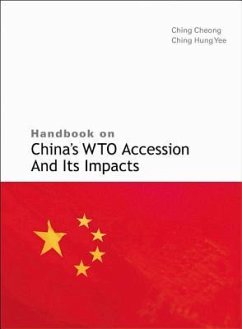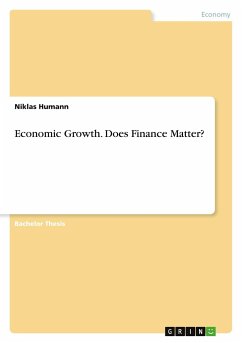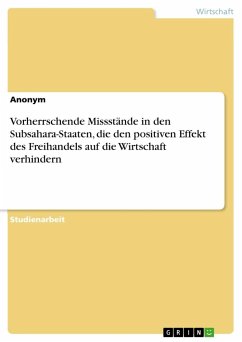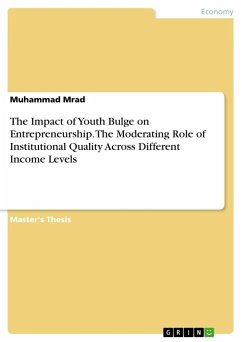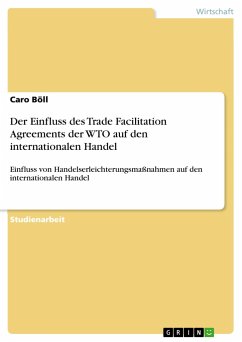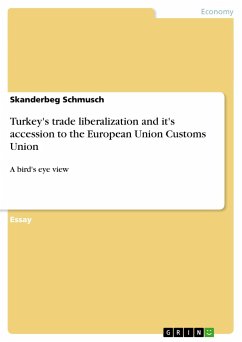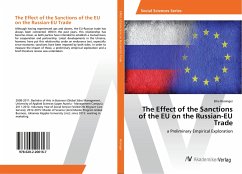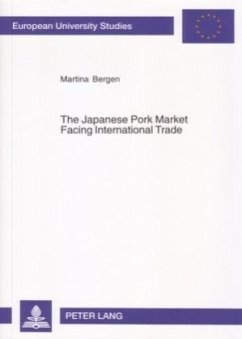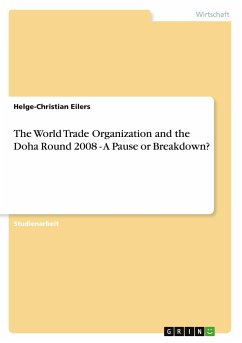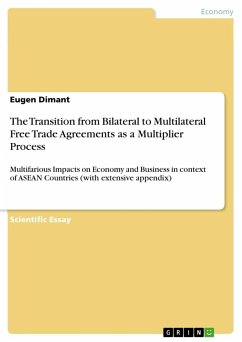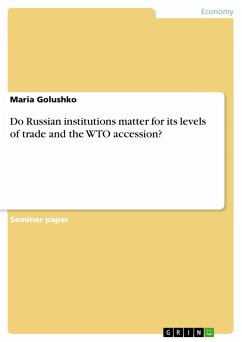
Do Russian institutions matter for its levels of trade and the WTO accession?
Versandkostenfrei!
Versandfertig in 1-2 Wochen
18,95 €
inkl. MwSt.

PAYBACK Punkte
0 °P sammeln!
Seminar paper from the year 2009 in the subject Economics - Finance, grade: 80%, University of Geneva, language: English, abstract: In the past few years Russian economy has undergone a tremendous transformation from the planified to the market economy. This transition was accompanied by a substantional political and social change. It has succeeded in some areas more than in others, for instance Russian institutions have been neglected during this process and had to adapt their Soviet content to the new order. This has been a considerable disadvantage to the competitiveness of Russian business...
Seminar paper from the year 2009 in the subject Economics - Finance, grade: 80%, University of Geneva, language: English, abstract: In the past few years Russian economy has undergone a tremendous transformation from the planified to the market economy. This transition was accompanied by a substantional political and social change. It has succeeded in some areas more than in others, for instance Russian institutions have been neglected during this process and had to adapt their Soviet content to the new order. This has been a considerable disadvantage to the competitiveness of Russian business and investment climate. One of the ways Russian authorities are hoping to correct this is by joining World Trade Organisation (WTO) and adopting its current norms and regulations, thus making governmental institutions more transparent and bringing them up to date with the rest of the economy.The negotiations for Russian accession have been going on for the past 17 years, and now that they are finally reaching a successful conclusion many new articles on the topic are. I have chosen the article by Oxana Babetskaia-Kukharchuk and Mathilde Maurel on Russia's accession and the potential effects that accession would entail. In particular this paper attempts to investigate the impact of Russian institutions on trade and seeks to predict the potential for trade augmentation between Commonwealth of Independent States (CIS) and EU in authors words: "Our objective in this paper is to estimate the potential benefit from Russia's participation in the WTO, by computing the impact of institutions on the intensity of bilateral trade flows."In order to reach their objective the authors use the gravity framework 2 to foresee the effect of being a member of CIS on bilateral trade levels. They develop the gravity equation by adding several institutional variables, for example the level of protection of the property rights, the share of black economy and the level of corruption in the custom duty, and level's of tariff and non-tariff barriers to trade. The article justifies its topic with the fact that the main issue for Russian accession to the WTO is the weakness of its institutions, particularly its reluctance to liberate corrupted and subsidised markets such as Agriculture, Services, and Standard and Certification.



